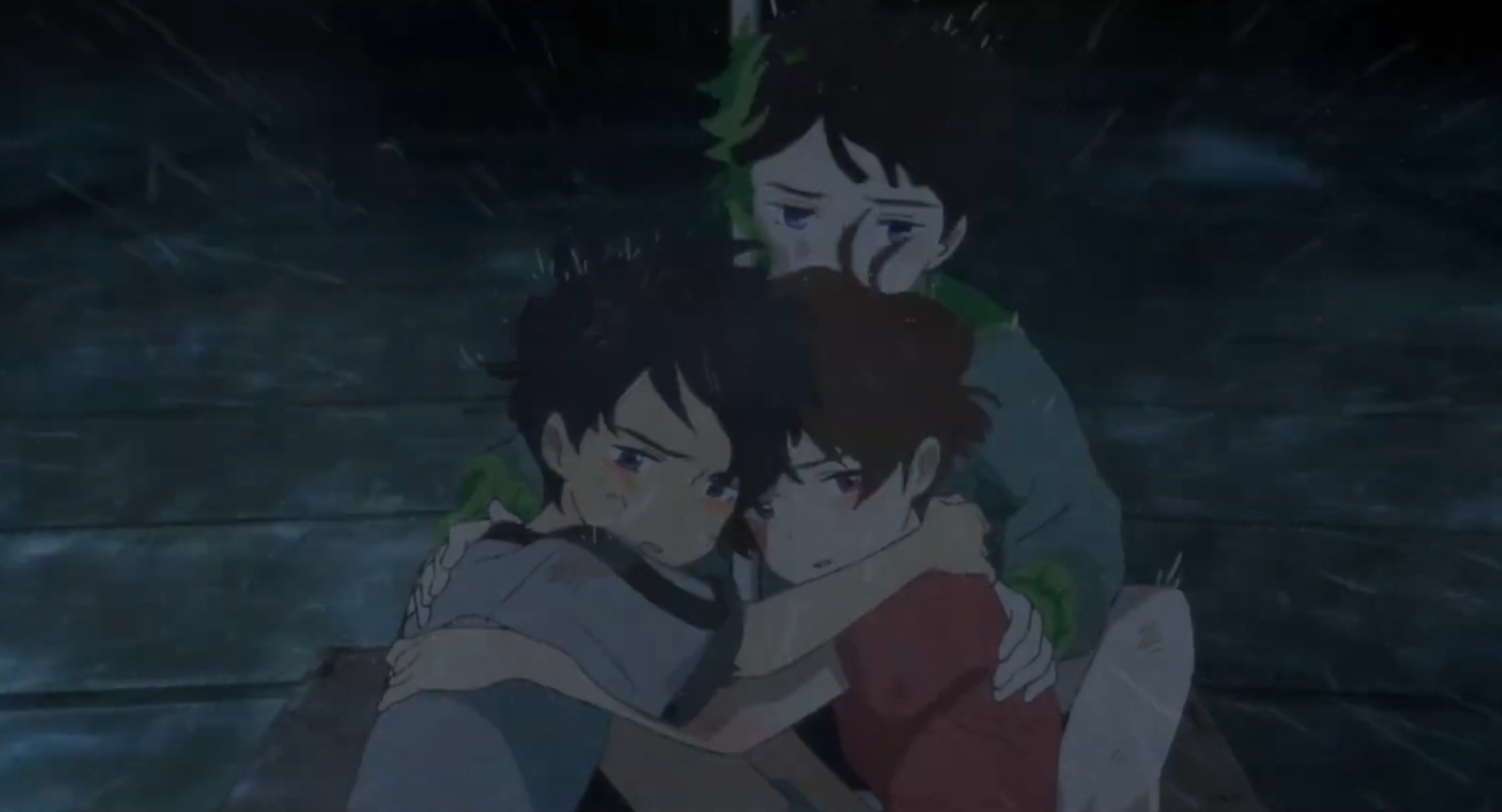An Honest Anime Review Of Drifting Home
I would really hate a heavy drama story that comes from Anime, the emotions are still static and you really don’t feel that emotion since you are watching a moving illustration, a drawing. Though it can’t be generalized with the way Hirotai Ishida executed a potential masterpiece. Potential because not all people would appreciate just a good drama coming from an Anime. I would not create this intro if I am not amazed. In the end they still don’t explain everything, however. Drifting Home and Violet Evergarden seems to be another exception to the rule.
Directed by Hirotai Ishida ("Penguin Highway") ("Rain City") who experimented with simple Wawtuh (water) and the visual style of animation studio "Studio Colorido", they managed to produce a stunning film - Enriched animation art as a medium comparable to Shinkai Makoto films. Yes, the animations are rich, solid, and surprisingly smooth. The stillness of the single frame, against the dazzling light, presents a montage of complete stillness - the role of the narrator is transferred into the frame, conveying the struggle of youth wandering in the sunken ocean of the vast desert. There are moments like this that permeate and exude emotional beauty—sympathy and empathy for the characters that make them feel alive and human. These examples of character bonding and development occur frequently in Acts 1 and 2 and set the stage for what is to come.
Handsome animations by Studio Colorido (Penguin Road, Beard Far Away) do a lot to sell the alternative premise. The structure moves and breaks with convincing weight, although the driving action is about a building that floats in the ocean like a raft. Likewise, young characters are drawn with light, flowing lines. Akihiro Nagae's designs remain down-to-earth, even in children's more imaginative characters. Realistic background art contrasts modernism with mid-century postwar architecture, but Ishida's direction is not obsessed with realism. It's never at odds with the film's sense of danger when the director infuses the characters' interactions with these environments with expansive, sometimes resilient physical comedy, such as when Kosuke boldly uses a makeshift zipline to reach an adjacent floating structure and walk through it The roof and the room below bounced like a pinball machine when the corrugated iron collapsed.
Some parts will interest you because they don't explain, but the story is well-paced, just slow. I'm happy with the animation because it's smooth, colorful and beautiful. She's funny and rude and selfish and that's what I see in the characters because I was like that as a kid. And the song is nice.
Despite its flaws, drifting home is a well-made anime
Apart from some dangerous situations that might scare younger viewers, there is little negative content. Drifting Home is suitable for most audiences, but the slow, contemplative pace and long run time can make it inaccessible for the inattentive audience. On the other hand, the rich themes and amazing creative elements make it a great choice for anime fans or fans of coming-of-age stories and magical realism.
Like many other anime, Drifting Home leaves a lot to be desired, although there are some well-known anime voice actors in English-speaking countries. Compared to the Japanese version, the English dialogue appears blunt, blunt, and unnatural. Text messages and everyday objects are still written in Chinese characters, while retaining some original cultural elements, although one character casually mentions going to Florida. The film seems to have a small identity crisis in these moments, which deepens the debate over the quality of viewing subtitles and dubbing in a completely different language to accommodate new audiences. In addition, the film's themes and material are equally suitable for adults and children.
Having said that, Drifting Home is so much better than most other movies that have come out lately - let alone the anime, and I can guarantee that no one is watching it feeling like their time was wasted on it. The only thing that felt wasted when finished was such a great concept that it wasn't explored as thoroughly as it should have been. Perhaps the title is the most apt metaphor to describe it: a film without direction, vague and meandering in content, free of any restraining drive and purpose, yet reaching a point of satisfaction, warmth and familiarity.











No comments